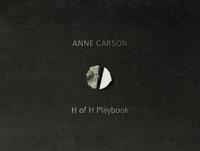Publisher's Synopsis
Excerpt from Progymnasmata: Passages in Prose and Verse From English Authors for Translation Into Greek and Latin; Together With Selected Passages From Greek and Latin Authors, for Translation Into English, Forming a Regular Course of Exercises in Classical Composition
The object of this Volume is to furnish Private Tutors and Masters of the higher forms in Schools, with a regular course of composition in which to exercise their Pupils. The pieces have been selected by the Editor for his own use, and have, many of them, undergone the test of frequent translation.
It has been thought desirable to intersperse with the composition, passages from Greek and Latin authors for translation into English. These are not given at length, but merely referred to, as the books are in every one's hands; and their selection usually has reference to the pieces for composition which follow them.
The student is recommended to prepare for composing in Greek or Latin, by reading (if aloud, the better) for about half an hour from some classical author, whose subject and manner of writing may be similar to that prescribed to him. Thus he will catch the spirit and tone of thought of the best days of the language; and, if he be writing in verse, will fall into an easy and unfettered style. He should not, however, degenerate into mere imitation: it is not the object of the scholar to parody Herodotus, or Euripides, Livy, or Lucretius, but to express the subject matter set before him in elegant diction, and with manly freedom, in the languages in which these authors wrote.
About the Publisher
Forgotten Books publishes hundreds of thousands of rare and classic books. Find more at www.forgottenbooks.com
This book is a reproduction of an important historical work. Forgotten Books uses state-of-the-art technology to digitally reconstruct the work, preserving the original format whilst repairing imperfections present in the aged copy. In rare cases, an imperfection in the original, such as a blemish or missing page, may be replicated in our edition. We do, however, repair the vast majority of imperfections successfully; any imperfections that remain are intentionally left to preserve the state of such historical works.










